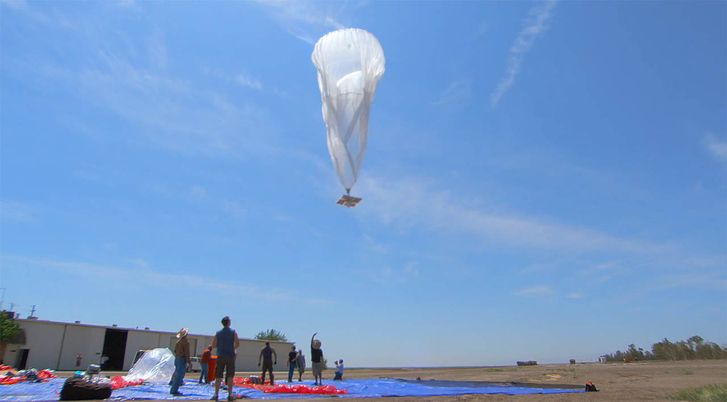Google's Project Loon plans to partner with telecommunication companies and wireless carriers in an attempt to deliver fast internet to rural parts of the world.
Google revealed last year that it cooked up a unique solution for those in rural areas who struggle to get access to the internet. Called Project Loon, the Google endeavour would use air balloons to beam 3G internet speeds down to remote places. Google claimed that for two out of three people in the world, access to a fast, reliable internet connection doesn't exist. Project Loon could change all that however.
Eric "Astro" Teller, chief of moonshots at Google X (likely because of his genius, which he inherited from his grandfather, Edward Teller, the creator of the hydrogen bomb), spoke at the TechCrunch Disrupt NY conference earlier today to reveal a little more about Project Loon, including how it will work, as well as how the strategy behind the project has evolved since conception.
Prior to publicly announcing Project Loon, Teller said the Google X team negotiated with various large companies for roughly six months. It wanted to buy a thin piece of harmonised spectrum, because the balloons could use this spectrum to deliver internet to the world. "We thought this was absolutely critical to the project, and we wanted to get it done before we launched," Teller explained during his interview.
READ: Google Project Loon brings balloon-powered internet access to remote areas
There was just one problem with the plan: Larry Page, chief executive at Google, didn't like it. "That’s not interesting," Page apparently told the team. "You're going to be really frustrated. You’ll be angry at me for a week, but then you’re going to get creative. You’ll come up with a home run." In fact, it didn't take long for the team to come up with a home-run idea. It has decided to use spectrum already owned by global telcos companies instead.
Google doesn't want to license spectrum from telcos companies though. It wants to lease Project Loon balloons to economically-conscious wireless carriers. The balloons would float over countries - using telcos spectrum and providing internet to places with no coverage - for the carriers, just like floating cell towers. Google will fulfill its goal of connecting the world, and wireless carriers won't need to invest a lot of money to use the spectrum in rural areas.
"That actually makes you feel much more comfortable that I’m not invading your country or about to take your users," Teller added. "Now you and I can be great friends, and we don’t even need to buy the spectrum." In addition, this plan will supposedly allow Google to offer more bandwidth too.

